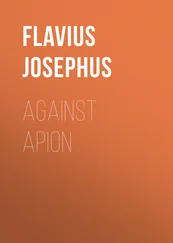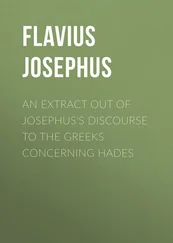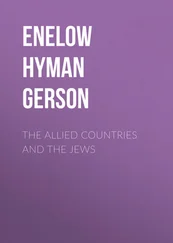Flavius Josephus - Antiquities of the Jews
Здесь есть возможность читать онлайн «Flavius Josephus - Antiquities of the Jews» — ознакомительный отрывок электронной книги совершенно бесплатно, а после прочтения отрывка купить полную версию. В некоторых случаях можно слушать аудио, скачать через торрент в формате fb2 и присутствует краткое содержание. Жанр: foreign_prose, История, foreign_edu, foreign_antique, на английском языке. Описание произведения, (предисловие) а так же отзывы посетителей доступны на портале библиотеки ЛибКат.
- Название:Antiquities of the Jews
- Автор:
- Жанр:
- Год:неизвестен
- ISBN:нет данных
- Рейтинг книги:5 / 5. Голосов: 1
-
Избранное:Добавить в избранное
- Отзывы:
-
Ваша оценка:
- 100
- 1
- 2
- 3
- 4
- 5
Antiquities of the Jews: краткое содержание, описание и аннотация
Предлагаем к чтению аннотацию, описание, краткое содержание или предисловие (зависит от того, что написал сам автор книги «Antiquities of the Jews»). Если вы не нашли необходимую информацию о книге — напишите в комментариях, мы постараемся отыскать её.
Antiquities of the Jews — читать онлайн ознакомительный отрывок
Ниже представлен текст книги, разбитый по страницам. Система сохранения места последней прочитанной страницы, позволяет с удобством читать онлайн бесплатно книгу «Antiquities of the Jews», без необходимости каждый раз заново искать на чём Вы остановились. Поставьте закладку, и сможете в любой момент перейти на страницу, на которой закончили чтение.
Интервал:
Закладка:
8. When Noah had made these supplications, God, who loved the man for his righteousness, granted entire success to his prayers, and said, that it was not he who brought the destruction on a polluted world, but that they underwent that vengeance on account of their own wickedness; and that he had not brought men into the world if he had himself determined to destroy them, it being an instance of greater wisdom not to have granted them life at all, than, after it was granted, to procure their destruction; "But the injuries," said he, "they offered to my holiness and virtue, forced me to bring this punishment upon them. But I will leave off for the time to come to require such punishments, the effects of so great wrath, for their future wicked actions, and especially on account of thy prayers. But if I shall at any time send tempests of rain, in an extraordinary manner, be not affrighted at the largeness of the showers; for the water shall no more overspread the earth. However, I require you to abstain from shedding the blood of men, and to keep yourselves pure from murder; and to punish those that commit any such thing. I permit you to make use of all the other living creatures at your pleasure, and as your appetites lead you; for I have made you lords of them all, both of those that walk on the land, and those that swim in the waters, and of those that fly in the regions of the air on high, excepting their blood, for therein is the life. But I will give you a sign that I have left off my anger by my bow." [whereby is meant the rainbow, for they determined that the rainbow was the bow of God]. And when God had said and promised thus, he went away.
9. Now when Noah had lived three hundred and fifty years after the Flood, and that all that time happily, he died, having lived the number of nine hundred and fifty years. But let no one, upon comparing the lives of the ancients with our lives, and with the few years which we now live, think that what we have said of them is false; or make the shortness of our lives at present an argument, that neither did they attain to so long a duration of life, for those ancients were beloved of God, and [lately] made by God himself; and because their food was then fitter for the prolongation of life, might well live so great a number of years: and besides, God afforded them a longer time of life on account of their virtue, and the good use they made of it in astronomical and geometrical discoveries, which would not have afforded the time of foretelling [the periods of the stars] unless they had lived six hundred years; for the great year is completed in that interval. Now I have for witnesses to what I have said, all those that have written Antiquities, both among the Greeks and barbarians; for even Manetho, who wrote the Egyptian History, and Berosus, who collected the Chaldean Monuments, and Mochus, and Hestieus, and, besides these, Hieronymus the Egyptian, and those who composed the Phoenician History, agree to what I here say: Hesiod also, and Hecatseus, Hellanicus, and Acusilaus; and, besides these, Ephorus and Nicolaus relate that the ancients lived a thousand years. But as to these matters, let every one look upon them as he thinks fit.
CHAPTER 4. Concerning The Tower Of Babylon, And The Confusion Of Tongues
1. Now the sons of Noah were three,—Shem, Japhet, and Ham, born one hundred years before the Deluge. These first of all descended from the mountains into the plains, and fixed their habitation there; and persuaded others who were greatly afraid of the lower grounds on account of the flood, and so were very loath to come down from the higher places, to venture to follow their examples. Now the plain in which they first dwelt was called Shinar. God also commanded them to send colonies abroad, for the thorough peopling of the earth, that they might not raise seditions among themselves, but might cultivate a great part of the earth, and enjoy its fruits after a plentiful manner. But they were so ill instructed that they did not obey God; for which reason they fell into calamities, and were made sensible, by experience, of what sin they had been guilty: for when they flourished with a numerous youth, God admonished them again to send out colonies; but they, imagining the prosperity they enjoyed was not derived from the favor of God, but supposing that their own power was the proper cause of the plentiful condition they were in, did not obey him. Nay, they added to this their disobedience to the Divine will, the suspicion that they were therefore ordered to send out separate colonies, that, being divided asunder, they might the more easily be Oppressed.
2. Now it was Nimrod who excited them to such an affront and contempt of God. He was the grandson of Ham, the son of Noah, a bold man, and of great strength of hand. He persuaded them not to ascribe it to God, as if it was through his means they were happy, but to believe that it was their own courage which procured that happiness. He also gradually changed the government into tyranny, seeing no other way of turning men from the fear of God, but to bring them into a constant dependence on his power. He also said he would be revenged on God, if he should have a mind to drown the world again; for that he would build a tower too high for the waters to be able to reach! and that he would avenge himself on God for destroying their forefathers!
3. Now the multitude were very ready to follow the determination of Nimrod, and to esteem it a piece of cowardice to submit to God; and they built a tower, neither sparing any pains, nor being in any degree negligent about the work: and, by reason of the multitude of hands employed in it, it grew very high, sooner than any one could expect; but the thickness of it was so great, and it was so strongly built, that thereby its great height seemed, upon the view, to be less than it really was. It was built of burnt brick, cemented together with mortar, made of bitumen, that it might not be liable to admit water. When God saw that they acted so madly, he did not resolve to destroy them utterly, since they were not grown wiser by the destruction of the former sinners; but he caused a tumult among them, by producing in them divers languages, and causing that, through the multitude of those languages, they should not be able to understand one another. The place wherein they built the tower is now called Babylon, because of the confusion of that language which they readily understood before; for the Hebrews mean by the word Babel, confusion. The Sibyl also makes mention of this tower, and of the confusion of the language, when she says thus: "When all men were of one language, some of them built a high tower, as if they would thereby ascend up to heaven, but the gods sent storms of wind and overthrew the tower, and gave every one his peculiar language; and for this reason it was that the city was called Babylon." But as to the plan of Shinar, in the country of Babylonia, Hestiaeus mentions it, when he says thus: "Such of the priests as were saved, took the sacred vessels of Jupiter Enyalius, and came to Shinar of Babylonia."
CHAPTER 5. After What Manner The Posterity Of Noah Sent Out Colonies, And Inhabited The Whole Earth
1. After this they were dispersed abroad, on account of their languages, and went out by colonies every where; and each colony took possession of that land which they light upon, and unto which God led them; so that the whole continent was filled with them, both the inland and the maritime countries. There were some also who passed over the sea in ships, and inhabited the islands: and some of those nations do still retain the denominations which were given them by their first founders; but some have lost them also, and some have only admitted certain changes in them, that they might be the more intelligible to the inhabitants. And they were the Greeks who became the authors of such mutations. For when in after-ages they grew potent, they claimed to themselves the glory of antiquity; giving names to the nations that sounded well [in Greek] that they might be better understood among themselves; and setting agreeable forms of government over them, as if they were a people derived from themselves.
Читать дальшеИнтервал:
Закладка:
Похожие книги на «Antiquities of the Jews»
Представляем Вашему вниманию похожие книги на «Antiquities of the Jews» списком для выбора. Мы отобрали схожую по названию и смыслу литературу в надежде предоставить читателям больше вариантов отыскать новые, интересные, ещё непрочитанные произведения.
Обсуждение, отзывы о книге «Antiquities of the Jews» и просто собственные мнения читателей. Оставьте ваши комментарии, напишите, что Вы думаете о произведении, его смысле или главных героях. Укажите что конкретно понравилось, а что нет, и почему Вы так считаете.












